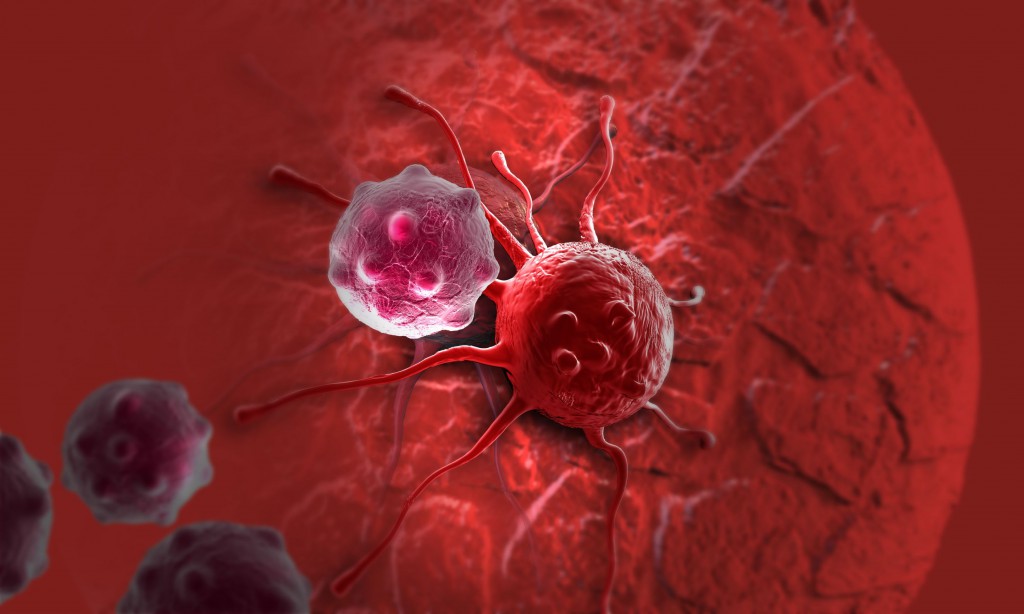
Chimeric Antigen Recepter (CAR)-T cell therapy is a personalized immunotherapy that harnesses the patient’s own immune system to combat cancer. It is done by engineering the patient’s T cells to specifically target and attack cancer cells in their body, and it has shown great success in treating various blood cancers such as leukemia.
Treating solid tumors with CAR-T cells, however, has proved much more challenging. This is mainly because solid tumors contain a heterogeneous population of cells, expressing a variety of antigens—many of which are also expressed in healthy cells. Therefore, T cells targeting solid tumors could potentially attack healthy tissue, resulting in serious side effects. In addition, solid tumors create a hostile microenvironment that is difficult for CAR-T cells to infiltrate.
To treat solid tumors, CAR-T cells need to effectively penetrate solid tumors while specifically targeting tumor cells without attacking healthy cells. Dr. Tal Danino’s team at Columbia University may have found a solution by combining CAR-T therapy with an intriguing approach: probiotics. Previous studies have shown that certain strains of bacteria can infiltrate and colonize solid tumors. In addition, several clinical trials have demonstrated the safety of using engineered bacteria in cancer patients, although efficacy was minimal.
Dr. Danino’s group engineered a non-pathogenic strain of E.coli to release synthetic antigens. The E.coli were able to infiltrate the tumor environment and tag tumor cells with these unique antigens, enabling CAR-T cells to specifically target and destroy tumor cells. To further enhance the immune response, the researchers also engineered E.coli to release chemokines that attract CAR-T cells. Results showed that the probiotic-guided CAR-T cells were effective in reducing tumor volume in mouse models of leukemia, colorectal cancer and breast cancer.
This study, published in Science, is the first to demonstrate an effective therapeutic approach combining engineered probiotics with CAR-T cell therapy. Using synthetic antigens to tag tumor cells brings forth the possibility of a universal CAR-T cell that could be used to treat any solid tumor type, avoiding the need to create personalized CAR-T cells for every patient or cancer type.
There are still many challenges to overcome before this approach can be used in human patients. For example, typical human tumors are much larger in size than mouse tumors, thus whether this approach will work for larger tumors still needs to be determined. In addition, humans have a stronger immune response against bacteria than mice, so there is the potential of immune-related side effects. Despite the concerns, this study brings hope of a new approach for treating challenging solid tumors.
Learn more about our solutions for CAR-T Cell Therapy
Related Posts
Latest posts by Johanna Lee (see all)
- Microfluidic Organoids Could Revolutionize Breast Cancer Treatment - March 25, 2025
- Bacteria From Insect Guts Could Help Degrade Plastic - January 28, 2025
- A Diabetes Drug, Metformin, Slows Aging in Male Monkeys - December 19, 2024
